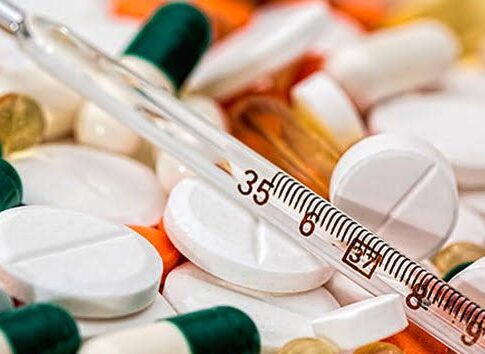Nigerians face a grave health risk as open-drug markets in Kano, Aba, Onitsha, and Lagos have become notorious for the sale of substandard medicines, the National Agency for Food and Drug Administration and Control (NAFDAC) has warned.
Prof. Mojisola Adeyeye, NAFDAC’s Director-General, revealed that these markets are fueling the distribution of low-quality drugs, endangering lives and undermining public health. “The open-drug markets in these cities have unfortunately become hotspots for substandard medicines,” she said during a News Agency of Nigeria (NAN) forum in Abuja.
The issue stems partly from legal disputes between patent medicine dealers and the Pharmaceutical Council of Nigeria (PCN), which lasted nearly a decade. These battles delayed regulation, allowing the influx of counterfeit drugs. However, a February 16 court ruling in favor of PCN has cleared the way for tighter controls.
Stricter Import Measures and Local Inspections
NAFDAC has since ramped up efforts to curb the distribution of falsified medicines. Import inspections have been tightened, with mandatory “Clean Report Inspection Analysis” conducted on drugs from major suppliers like India and China. Additionally, all suspicious products are subjected to rigorous lab testing at ports.
“Recently, we stopped 180 substandard products from entering the country,” Adeyeye noted, underscoring the agency’s commitment to public health.
Reforms in Kano and Other States
To address the problem locally, open-drug marketers in Kano have been relocated to the Kanawa Coordinated Wholesale Centre, where stricter regulations are enforced. Adeyeye emphasized that sellers must avoid substandard drugs or face severe consequences.
“NAFDAC has implemented 12 strategies to control substandard and falsified medicines,” she said, adding that these reforms are part of broader efforts to protect Nigerians.
READ MORE: Nigerian Air Force Receives 63 New Aircraft in Three Years, Marks Milestone in Safety and Training
Speaking further, Adeyeye urged consumers to purchase medications only from licensed pharmacies and verify products using NAFDAC registration numbers. Suspicious drugs should be reported to the agency immediately.
“Substandard drugs don’t just fail; they prolong illness and increase resistance to vital medicines, posing a severe threat,” Adeyeye warned.
NAFDAC’s initiatives signal a turning point in the battle against counterfeit medicines, offering hope for safer healthcare access in Nigeria.




